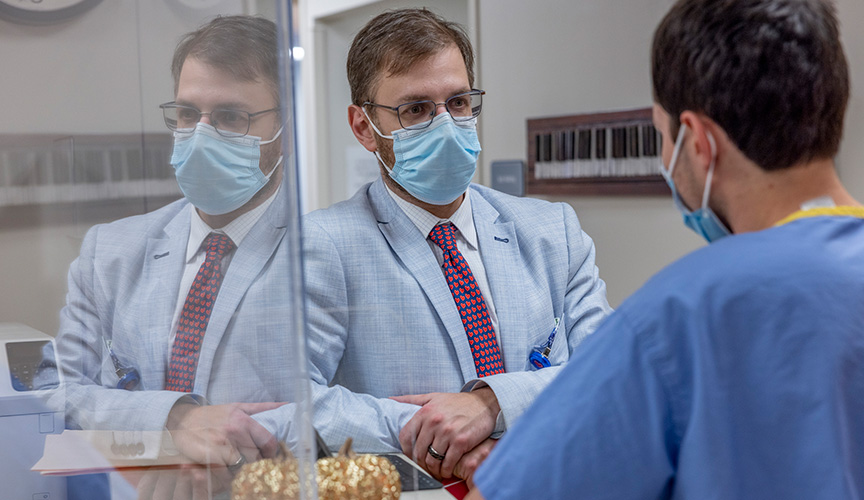Tonsillectomy and Developmental Delay
Children with developmental delay may be at risk for higher complication rates following tonsillectomy compared to children without developmental delay, according to research published in International Journal of Pediatric Otorhinolaryngology by Anthony Sheyn, MD, FACS, chief of Otolaryngology at Le Bonheur Children’s Hospital.
Developmental delay (DD) refers to a broad group of conditions that involve impairments in communication, gross and fine motor skills, problem solving and social interactions. Children with DD often have complex medical histories with comorbidities, increasing their need for more health care treatment than children without DD.
“We have a limited amount of literature studying the effect of DD in pediatric surgical patients,” said Sheyn. “We wanted to further investigate the role that DD has on the outcome of our most performed pediatric surgery, tonsillectomy.”

Le Bonheur Chief of Otolaryngology Anthony Sheyn, MD, FACS, published research showing the increased risk of complications for children with developmental delay who undergo tonsillectomy.
Researchers reviewed chart data from 400 tonsillectomy patients to compare post-operative complication rates between children with and without DD. Of these patients, 56 (13.9%) had a DD diagnosis.
Results showed that patients with DD had a significantly increased risk for post-operative complications and experienced significantly more respiratory complications, such as respiratory arrest and overnight oxygen desaturation. Where 32.14% of patients with DD had a complication after surgery, only 8.72% of patients without DD had a complication. Other complications included post-operative hemorrhage, dehydration and vomiting.
Furthermore, patients with moderate to severe DD had a higher risk for post-operative complications compared to patients with mild DD. Patients with Down syndrome, Global Developmental Delay or two or more delays in developmental milestones were classified as severe. Within the severe DD subgroup, nine out of 13 patients (69.23%) experienced a complication after surgery.
This study emphasizes the need for in depth pre-operative planning for patients with DD to lower risk of complications postoperation. Researchers suggest this need is heightened for patients with moderate to severe DD, but more research is needed to define DD severity and how it affects surgical outcomes.
“This elevated risk of complications should be included in preoperative counseling and has potential implications for pre-operative decision making and treatment plans in this high-risk population,” said Sheyn. “We suggest in depth counseling and close follow up after surgery for these patients to help reduce the current findings of an increased complication rate.”
Help us provide the best care for kids.
Le Bonheur Children's Hospital depends on the generosity of friends like you to help us serve 250,000 children each year, regardless of their family’s ability to pay. Every gift helps us improve the lives of children.
Donate Now








